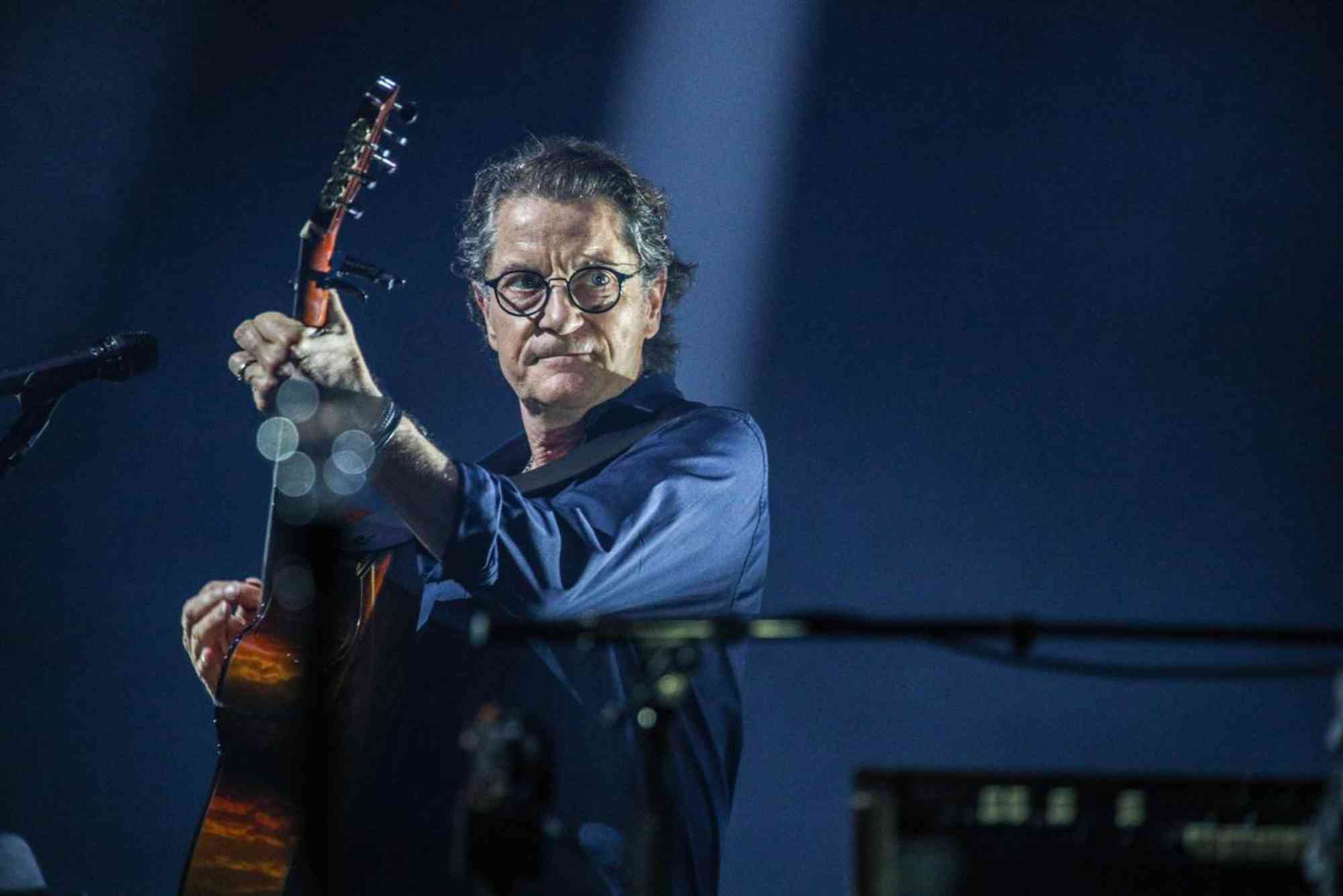Introduction
Francis Cabrel Sicre, a name synonymous with French folk and pop music, has left an indelible mark on the music industry. Known for his unique sound and poetic lyrics, his influence reaches beyond just the French-speaking world. Over his career, Cabrel has produced numerous hit songs that have shaped the cultural landscape of France and continue to inspire musicians globally. In this article, we’ll dive deep into his life, career, and the enduring legacy of his music.
The Early Life of Francis Cabrel Sicre
Born on November 23, 1953, in Agen, France, Francis Cabrel grew up in a modest household. His early years were steeped in a love for music, and he began learning the guitar at a young age. As a teenager, Cabrel was influenced by the American folk music movement and the works of artists like Bob Dylan and John Lennon. This led him to develop a passion for songwriting, and his distinctive style began to take shape.
Despite being immersed in French culture, Cabrel’s early music leaned heavily on the folk influences he admired. His songs often combined French poetry with the storytelling tradition of folk music, which helped him stand out in the French music scene.
Cabrel’s Rise to Fame
Francis Cabrel’s breakthrough came in 1977 when he released his debut album, Francis Cabrel. The album quickly garnered attention with songs like “Petite Marie,” a heartfelt love song that resonated with audiences across France. His ability to blend simple yet powerful lyrics with evocative melodies made him an instant favorite among music lovers.
In the following years, Cabrel continued to rise to prominence with the release of his second album, Ici, D’Ailleurs et d’Ainsi de Suite (1981), which solidified his status as a leading figure in French music. His poetic, thoughtful lyrics captured the complexities of human emotions and life in a way that connected deeply with his audience.
Francis Cabrel Sicre’s Musical Style and Themes
What truly distinguishes Francis Cabrel’s music is his exceptional ability to intertwine various genres, blending folk, rock, and pop influences. He’s often praised for his lyrical storytelling, where he explores themes of love, nature, personal struggle, and societal observations. His songs speak to universal human experiences while remaining distinctly rooted in French culture.
His 1994 album, Samedi Soir sur la Terre, is a standout example of his musical genius. This album featured some of his most popular tracks, including “Je l’aime à mourir,” which remains one of his signature songs. The track’s emotional depth and timeless appeal made it an instant classic and further cemented Cabrel’s reputation as one of the greatest French singer-songwriters.
The Influence of Francis Cabrel on Contemporary Artists
Over the years, Francis Cabrel Sicre has inspired countless musicians, both in France and abroad. His ability to craft songs that are both emotionally resonant and musically intricate has made him a role model for aspiring artists. Artists across genres, from pop to folk to rock, have cited Cabrel’s work as a major influence in shaping their own music.
Despite his success, Cabrel has always maintained a humble and grounded approach to his work, which is part of why he remains so beloved. His music continues to captivate new generations, and his impact on French culture and music is undeniable.
A Legacy That Lives On
As of today, Francis Cabrel is still active in the music industry, releasing new material and performing for his ever-growing fanbase. His dedication to his craft and his ability to evolve with the times have allowed him to remain relevant throughout the decades. Cabrel’s enduring popularity is a testament to his artistry and the universal appeal of his music.
Step-by-Step Guide: How to Explore Francis Cabrel Sicre’s Music
If you’re eager to explore the world of Francis Cabrel Sicre, here’s a step-by-step guide to dive into his rich musical legacy:
- Start with the Classics: Begin by listening to his most iconic songs, such as “Je l’aime à mourir,” “Petite Marie,” and “La Corrida.” These tracks offer a glimpse into Cabrel’s poetic lyricism and musical prowess.
- Explore His Albums: Delve into his full discography. Key albums include Francis Cabrel (1977), Samedi Soir sur la Terre (1994), and In Extremis (2015). Each album showcases a different phase of his musical evolution.
- Watch Live Performances: Cabrel’s live performances are a must-see for fans. They provide a unique insight into his stage presence and the way he connects with his audience.
- Read About His Lyrics: Take some time to explore the meaning behind his songs. His lyrics are often filled with intricate metaphors and social commentary, making them worth analyzing.
- Engage with His Fanbase: Join online forums or social media groups dedicated to Francis Cabrel. This will allow you to connect with fellow fans and stay up to date with his latest news and releases.
- Attend His Concerts: If possible, catch him live in concert. His performances are legendary, offering an intimate experience of his music.
By following these steps, you’ll gain a deeper understanding of Francis Cabrel Sicre’s impact on music and his enduring legacy.
Related FAQs
Q: What is Francis Cabrel’s most famous song?
A: Francis Cabrel’s most famous song is “Je l’aime à mourir,” which became a timeless classic and remains a fan favorite.
Q: Is Francis Cabrel still performing?
A: Yes, Francis Cabrel is still active in the music industry and regularly performs in concerts worldwide.
Q: What is the musical style of Francis Cabrel?
A: Cabrel’s music blends folk, rock, and pop influences, often featuring poetic lyrics that touch on themes of love, nature, and personal reflection.
Q: Where can I find more about Francis Cabrel’s music?
A: For more information on Francis Cabrel and to explore his discography, visit Finder to Go at









